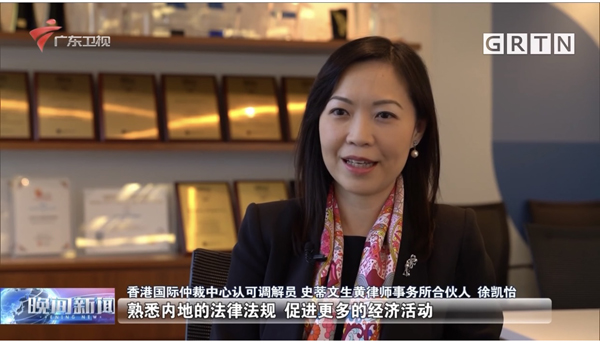On 19 February 2021, our firm’s Partner, Head of Banking and Finance department and Dispute Resolution department, Ms. Heidi Chui, was interviewed by Guangdong Television’s Evening News on Hong Kong’s latest developments and opportunities under the “Outline Development Plan for the Guangdong-Hong Kong-Macao Greater Bay Area”, which was launched 2 years ago.

During the interview, Ms. Chui shared the latest initiative by the Ministry of Justice of the People’s Republic of China. The initiative allows eligible Hong Kong lawyers to practice in specified area of law in 9 cities in the Greater Bay Area after passing the qualifying examination and training. The initiative would enable Hong Kong lawyers to understand more about the Mainland legal market and further facilitate economic activities between the Mainland and Hong Kong.

Please click here to watch the interview (available in Chinese only).
Please contact our Ms. Heidi Chui (heidichui.office@sw-hk.com) for any enquiries or further information.



























